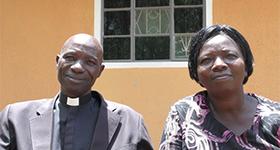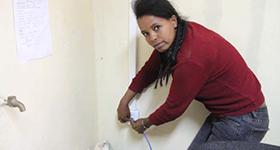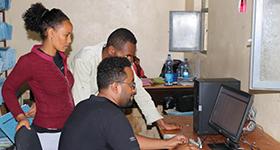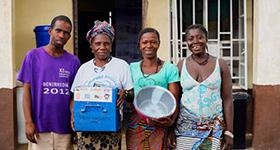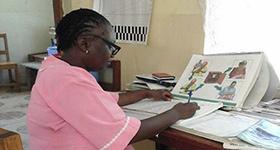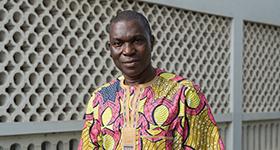Background
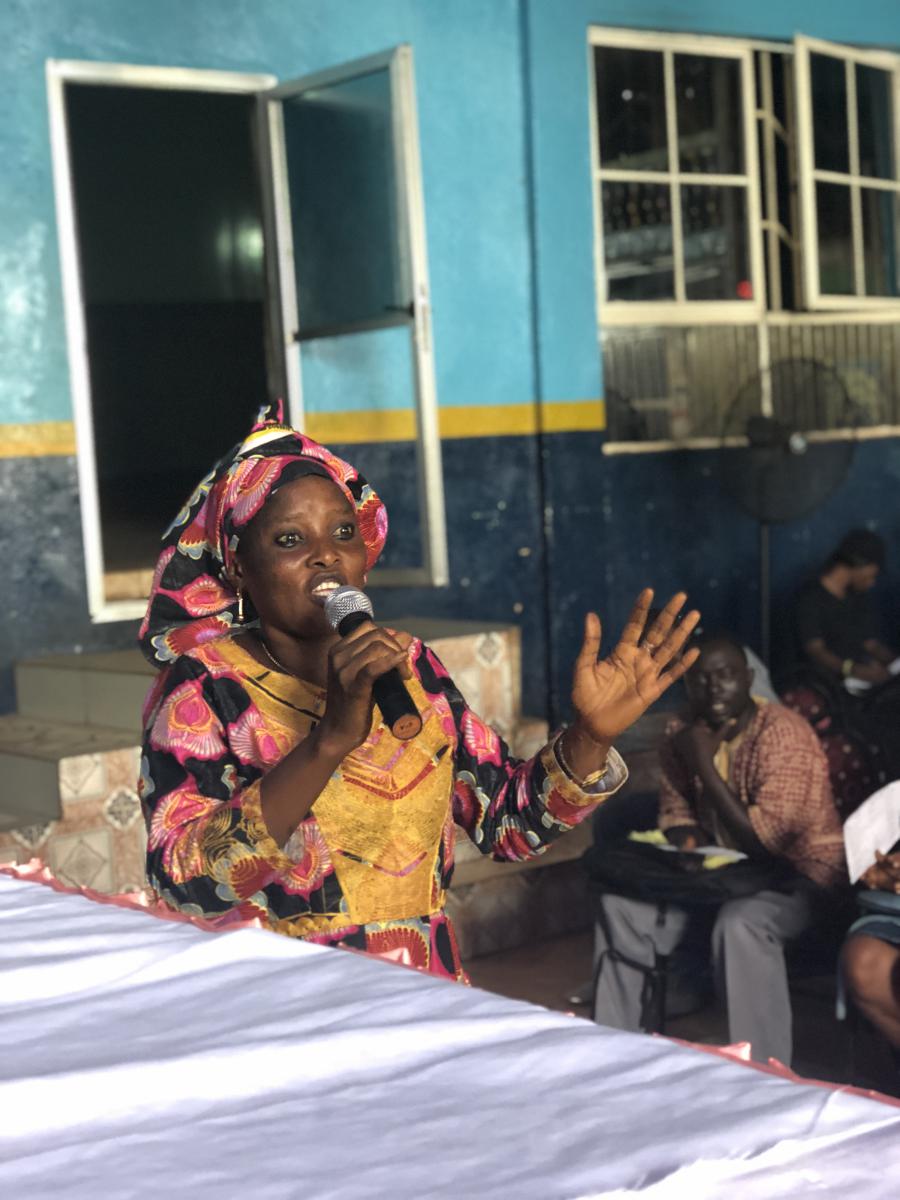
Isatu Bangura tells her fellow learners at the SLAES Literacy Class graduation ceremony how she feels empowered and now wants to continue her education. Photo: JSI/APC Sierra Leone
Isatu Bangura was illiterate when she joined the adult literacy program. She could neither read nor write her name, and she had no basic numeracy skills. She struggled to fill out bank slips and was unable to help her eight-year-old daughter with her assignments.
Isatu lived her whole life in Mabella community, a congested coastal slum settlement in Freetown with densely populated, makeshift housing structures. Residents of this community suffer extreme levels of poverty, illiteracy, and other vulnerabilities, including severe undernourishment and reoccurring health issues.
The nature of the community made it particularly susceptible to the Ebola outbreak that ravaged Sierra Leone from 2014 to 2016. While almost 4,000 people across Sierra Leone survived Ebola, survivors like Isatu living in Mabella also face serious social and economic issues, in addition to the stigma and discrimination experienced by many survivors.
Intervention
To help rebuild the lives of Ebola survivors, JSI’s USAID-funded Advancing Partners & Communities project, in collaboration with Partners in Health (PIH) and the Sierra Leone Association of Ebola Survivors (SLAES), is offering an adult literacy program for Ebola survivors and their families in Freetown. The program has 179 learners enrolled across Westerns Area Urban, with classes hosted at eight different centers, including one in the Mabella community. The program runs a 3‒4 month cycle where learners are taught basic literacy skills including reading, writing, and numeracy.
Since starting the program, Isatu has learned to write her name and sign documents. She can now read and also write simple sentences. By attending classes and gaining new knowledge, Isatu is able to count and support her daughter with basic math assignments and other subject areas.
“I can still remember the first day our teacher asked me to call the class attendance. I was shaking and terrified, wondering if I could do it. But after a lot of corrections, I finally did it. Can you image that I am the one who calls class attendance on daily basis?” said Isatu.
For her, being able to access adult literacy has been a life-changing experience. “With all the difficulties around me—family problems, business engagements to make ends meet, and community provocations etc.—I still managed to overcome everything. Some people even thought that I was wasting my time by trying to learn at my age. I thank God that I was able to do so and today, I see myself as heroine for making this sacrifice.”
Outcomes

More than 175 survivors and their families graduated from the adult literacy class supported by Advancing Partners & Communities. Photo: JSI/APC Sierra Leone
Isatu Bangura is just one of the 179 learners who have benefited from adult literacy classes. The impact of the program extends far beyond the classroom. “Sierra Leone has some of the highest illiteracy rates in the world, especially among women,” says Mara Kadra-Nelson, Director of Community-Based Programs for PIH. “We know that illiteracy is linked to poverty and poor health outcomes, and investments in supporting literacy can positively impact so many aspects of a person’s well-being.”
Isatu agrees, “I can proudly recommend these classes for any adult wishing to learn how to read and write. Teaching us how to read and write, and also how to be self-reliant, is the start of our journey, after surviving Ebola, towards realizing our hopes and demonstrating resilience.”
Through its partnership with PIH, Advancing Partners & Communities’ Ebola Transmission Prevention and Survivor Services Program—Strengthening Health Services Post-Ebola (SHSPE) project supports an intensive capacity building program with SLAES. The program focuses on key areas of capacity development that enable the organization to be self-sustaining. As one component of this initiative, SLAES leaders learned project management hands-on with guidance from the JSI team. They chose to implement the adult literacy project as a priority for building resiliency within their community.

